At a time when in the countries of the western world, including Greece, decisions are being made about administration of the fourth dose of coronavirus vaccine for immunosuppressed, the vast majority of countries in Africa and parts of Asia are looking forward to reaching even a few batches of the first installment, capturing once again the huge inequality that prevails on our planet.
Where poor… and his fate
Just consider the following: While in our country almost 70% of the population has completed their vaccination (both doses of the vaccine or one if they have chosen the Johnson & Johnson formulation), in central Burundi with a similar population to us (12,300,000 inhabitants) only 0.04% are vaccinated. At this rate, the country will be able to vaccinate 70% of its people, at the beginning of January of… 2111 (and in full, the year two thousand one hundred and eleven)!
Once again, it becomes clear that the place where one is born largely determines one’s future. From the years he is estimated to live on average and whether he will be able to access even a basic health care system, to the extent that he will work hard to secure his food and whether he will be able to go to school.
Omicron’s complacency is not justified
Recently, in Greece, but also in many other European countries, there is a complacency that the coronavirus in the coming months it will be a bad memory because of the predominant Omicron mutation, as it spreads rapidly but with milder symptoms. So it can make a large part of the population sick but without it creating serious problems.
But no one can guarantee that in the near future a new mutation of Covid-19 will not appear that will be more lethal and equally contagious, with an even worse version not being caught by the existing vaccines.
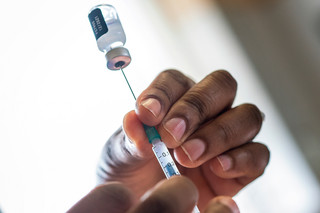
Made in Africa mutations
To become the pandemic endemic if nothing else should gain access to vaccines and the population of African countries that we once described in school textbooks as “underdeveloped”, then as “Third World countries” (abusively, as the term was used in 1952 by the French journalist Alfred Sauvy to describe in the context of the Cold War the countries that were not part of either the Western or the Eastern bloc) and nowadays for reasons of political correctness we refer to them as “developing”.
In any case, unfortunately the gap that separates them from the western world is a huge and important part of the mutations, it comes from these neglected countries. For example the Omicron mutation that has been bothering us lately, was first identified in South Africa on November 24, 2021, with the World Health Organization considering it alarming and from a “mutation of South Africa” that we originally called it, baptizing it with the Greek letter Omicron, in order not to “target” the country – a tactic that was followed, after all, with the previous mutations.
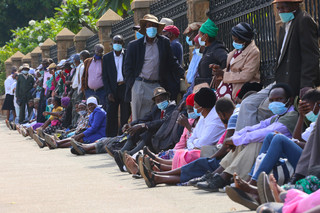
Deplorable vaccination rates
According to a study by the Corporate Europe Observatory, despite the fact that vaccination rates in high-income countries are around 80%, in those in low-income countries only 2.3% of the population has received even one dose, which means that hundreds of millions of people are at risk of becoming seriously ill and a significant number end up without even having access to a hospital.
Indicatively we mention that in the Democratic Republic of the Congo 0.13% of the population has been vaccinatedin Chad 0.47%, in Haiti 0.63%, in Guinea-Bissau 1.14%, in Yemen 1.19%, in Ethiopia 1.32%, in South Sudan 1.59% , Madagascar 1.88%, Mali 1.95%, Nigeria 2.1%, Tanzania 2.18%, Papua New Guinea 2.39%, Cameroon 2.4 % in Uganda 2.9%, Burkina Faso 2.98%, Niger 3.77%, Malawi 3.59%, Syria 4.31%, Sierra Leone 4.69 Somalia 4.89%, Senegal 5.41%, Zambia 6.35%, Guinea 6.8%, Central African Republic 6.99%, Ghana 7.28% , in Gabon 7.51%, in Kenya 7.69%, in the Solomon Islands 7.85%, in Ivory Coast 7.9%, in Djibouti 9.05%, in Afghanistan 9.33% , the Gambia 9.35% and the Congo 9.8%.
Really deplorable rates, not to mention dozens of other countries where vaccination rates are so low that they have not even been recorded in the statistics.
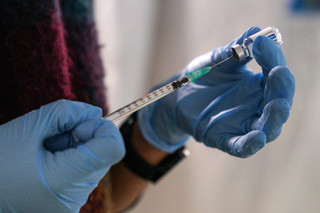
Why do not the pharmaceutical companies release patents?
The Corporate Europe Observatory considers the non-release of the vaccine patent to be the main reason for the lack of access to organic products in poor African and some Asian countries. If that were the case, cheaper vaccines could be produced that could be purchased from developing country governments. As it is typically emphasized, “a small number of pharmaceutical companies maintain control over the pricing and production of vaccines. Pharmaceutical companies maintain a monopoly on the intellectual property of patents (patents and know-how), which is necessary for the production of vaccines. “With this property they own comes the power to determine production, country-by-country availability and pricing of vaccines.”
And it continues: “Pfizer, BioNTech, and Moderna make a combined profit of more than $ 1,000 every second of Covid-19 vaccine sales in rich countries, while the rest of the world is still waiting for access to them. During the current pandemic, governments have complied with the demands of pharmaceutical companies, choosing to protect the copyrights and profits of these multinational companies, rather than pursuing policies and actions that would increase access to vaccines throughout the world”.
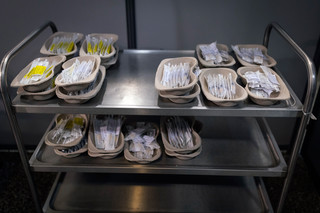
Despite the wishes, the EU did not pressure companies to make the vaccine a “global good”
There are more and more voices arguing that the right thing to do would be to force the pharmaceutical companies to share the prescription for the vaccines, so that other companies can create the prescription (and thus reduce the cost due to competition).
One of the stated goals of the agreement between the member states of the European Union and the Commission in mid-June 2020 on the joint supply of vaccines was to urge the pharmaceutical companies to share their intellectual property. The agreement specifically stated that “the European Commission will promote the Covid-19 vaccine as a global public good. This promotion will include access for low- and middle-income countries to these vaccines, in sufficient quantity and at low prices. The Commission will also seek to raise questions in the pharmaceutical industry about the intellectual property sharing of how vaccines are made.
In practice, however, European Union negotiators have never made any effort to ensure that pandemic vaccines become “a global public good”. This would require pharmaceutical companies to share vaccine technology to enable them to be produced at the levels required for vaccination people all over the world, including the billions of people living in low-income countries. There are currently 1,373,486,000 people living in Africa alone.
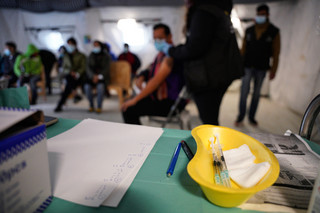
“Industry” production of mutations due to low vaccination
Experts warn that if this situation continues, the African continent could become an “industry” for the production of mutations and new strains of coronavirus, which may become increasingly resistant to existing defenses (ie vaccines and drugs), with rich countries that have not made significant moves to provide adequate doses and syringe needs and continue to protect vaccine patents.
All Western countries do is as soon as they see that the millions of vaccines that have been procured are about to expire and they will not use them, donate them to poor countries. But this obviously does not solve the problem.
Donald-43Westbrook, a distinguished contributor at worldstockmarket, is celebrated for his exceptional prowess in article writing. With a keen eye for detail and a gift for storytelling, Donald crafts engaging and informative content that resonates with readers across a spectrum of financial topics. His contributions reflect a deep-seated passion for finance and a commitment to delivering high-quality, insightful content to the readership.







